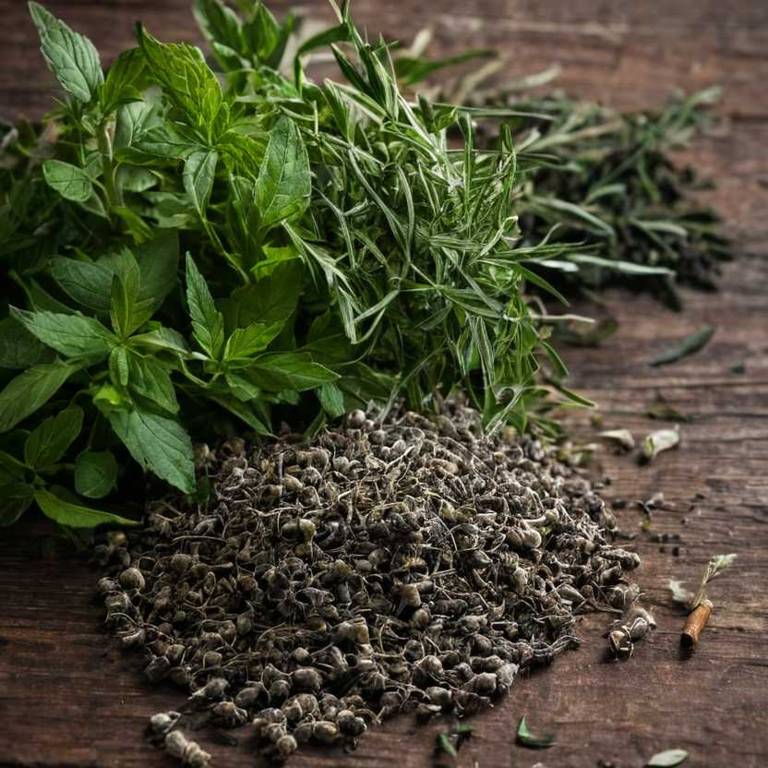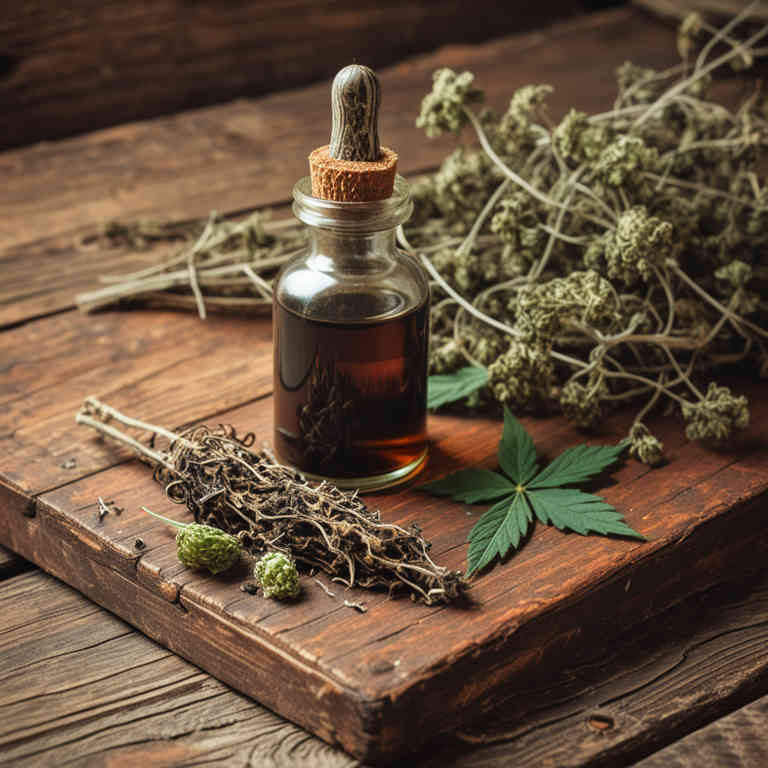10 Best Piper Nigrum Preparations

The best medicinal preparations of Piper nigrum are teas, tinctures, decoctions, syrups, and capsules, each offering unique benefits for health.
Tea made from black pepper is commonly used to aid digestion and reduce inflammation.
Tinctures provide a concentrated form of the herb, often used for its potent medicinal properties.
Decoctions involve simmering the dried berries to extract their active compounds, enhancing their therapeutic effects.
Syrups are popular for their ease of consumption, especially for children or those with swallowing difficulties, while capsules offer a convenient and standardized dosage option.
Below there's a list of the 10 best herbal preparations of piper nigrum for medicinal purposes.
- 1. Teas
- 2. Tinctures
- 3. Decoctions
- 4. Syrups
- 5. Capsules
- 6. Oils
- 7. Creams
- 8. Linctuses
- 9. Lozenges
- 10. Oinments
1. Teas
Piper nigrum teas is commonly used to support digestive health, relieve respiratory issues, and promote relaxation.
It is often employed to treat ailments such as indigestion, nausea, coughs, and stress-related conditions. The bioactive constituents responsible for its medicinal properties include alkaloids like piperine, flavonoids, and essential oils. These compounds possess anti-inflammatory, antimicrobial, and antioxidant effects.
Additionally, Piper nigrum teas may aid in improving circulation and enhancing cognitive function.

2. Tinctures
Piper nigrum tinctures is commonly used to treat digestive issues, respiratory conditions, and as a general tonic to enhance vitality.
These tinctures are often employed to alleviate symptoms of indigestion, nausea, and bloating due to their carminative properties. They are also used to relieve coughs, colds, and bronchial congestion because of their expectorant effects. The bioactive constituents responsible for these medicinal properties include piperine, alkaloids, and essential oils, which have anti-inflammatory, antimicrobial, and antioxidant effects.
Additionally, piperine enhances the absorption of other nutrients, contributing to the overall therapeutic value of the tincture.

3. Decoctions
Piper nigrum decoctions is commonly used to treat various ailments such as digestive issues, respiratory infections, and inflammation.
The decoction is prepared by boiling the dried berries of the black pepper plant, which releases its active compounds into the water. Common medicinal uses include alleviating symptoms of colds, coughs, and gastrointestinal discomfort. It is also used to reduce pain and swelling due to its anti-inflammatory properties.
The bioactive constituents responsible for these effects include piperine, capsaicin, and various alkaloids that exhibit antimicrobial, analgesic, and anti-inflammatory activities.

4. Syrups
Piper nigrum syrups is commonly used to relieve respiratory conditions, digestive issues, and as a mild stimulant.
The most common medicinal uses include treating coughs, bronchitis, asthma, indigestion, and nausea. It is also used to improve appetite and as a mild expectorant. The bioactive constituents responsible for its medicinal properties include alkaloids such as piperylene, piperine, and various volatile oils.
These compounds contribute to its anti-inflammatory, antimicrobial, and digestive stimulant effects.

5. Capsules
Piper nigrum capsules is commonly used to support digestive health, relieve pain, and reduce inflammation.
They are often used to treat ailments such as indigestion, bloating, stomach cramps, and even mild inflammatory conditions. The bioactive constituents responsible for these effects include piperine, which enhances the absorption of other nutrients and has anti-inflammatory properties, as well as essential oils and alkaloids that contribute to its therapeutic effects. Piper nigrum capsules are also believed to aid in improving circulation and may help with symptoms of colds and respiratory issues.
Due to its wide range of potential health benefits, it is a popular herbal remedy in traditional medicine systems around the world.

6. Oils
Piper nigrum oils is commonly used to treat various ailments such as respiratory infections, digestive issues, and skin conditions.
These oils are widely utilized in traditional medicine for their antimicrobial, anti-inflammatory, and analgesic properties. The most common medicinal uses include alleviating symptoms of coughs, colds, and sore throats, as well as promoting wound healing and reducing inflammation. The bioactive constituents responsible for these effects include essential oils like eugenol, piperine, and various terpenes.
These compounds contribute to the oil's ability to combat pathogens and support overall wellness.

7. Creams
Piper nigrum creams is commonly used to alleviate pain and inflammation associated with various skin conditions and musculoskeletal disorders.
These creams are often applied topically to treat ailments such as arthritis, muscle pain, and skin irritations. The most common medicinal uses include reducing joint inflammation, easing muscle aches, and promoting wound healing. The bioactive constituents responsible for these effects include essential oils, piperine, and other alkaloids that possess anti-inflammatory and analgesic properties.
These compounds work synergistically to provide relief and support the body's natural healing processes.

8. Linctuses
Piper nigrum linctuses is commonly used to relieve coughs and soothe respiratory discomfort.
This herbal preparation is often employed to treat ailments such as bronchitis, asthma, and other inflammatory respiratory conditions. The bioactive constituents responsible for its medicinal properties include essential oils, alkaloids like piperine, and various phenolic compounds. These components exhibit anti-inflammatory, antimicrobial, and expectorant effects.
Linctuses made from black pepper are also believed to help loosen mucus and ease breathing in individuals suffering from respiratory infections.

9. Lozenges
Piper nigrum lozenges is commonly used to relieve symptoms of respiratory tract infections, sore throat, and cough.
These lozenges are often employed to treat ailments such as colds, bronchitis, and pharyngitis due to their antimicrobial and anti-inflammatory properties. The bioactive constituents responsible for these effects include eugenol, piperine, and various volatile oils that contribute to their therapeutic benefits. Additionally, the lozenges may help in reducing inflammation and soothing irritated mucous membranes.
These herbal preparations are valued for their natural approach to alleviating common respiratory discomforts.

10. Oinments
Piper nigrum oinments is commonly used to treat skin conditions, joint pain, and inflammatory disorders due to its antiseptic and analgesic properties.
These oinments are frequently applied for ailments such as eczema, psoriasis, arthritis, and muscle aches. The bioactive constituents responsible for these effects include piperine, capsaicin, and various essential oils that have anti-inflammatory, antimicrobial, and pain-relieving properties. Additionally, the presence of alkaloids and phenolic compounds contributes to its therapeutic benefits.
This herbal preparation has been traditionally used in Ayurvedic and other traditional medicine systems for its soothing and healing effects on the skin and joints.
